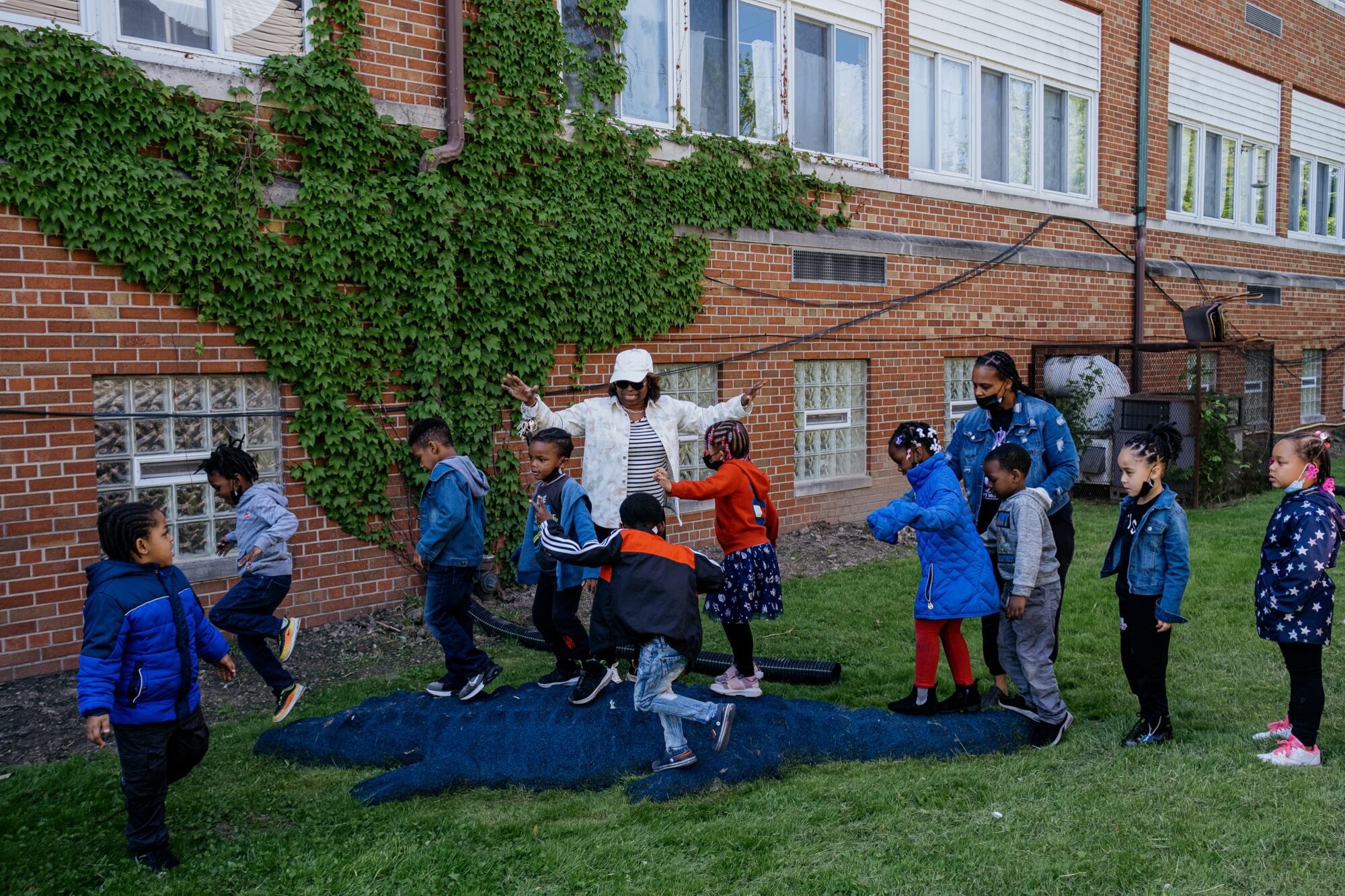With an ongoing educator shortage, Michigan has invested nearly $1 billion in the last two years in recruiting more teachers.
Now, advocates and parents say lawmakers must do more to retain and support teachers of color who work in communities experiencing high rates of poverty.
Among the suggestions made by those who spoke Tuesday during a meeting of the Senate Appropriations Subcommittee on PreK-12 were higher pay, culturally responsive support, and stipends for teachers in districts that have difficulty retaining staff.
Overall, Michigan had a teacher retention rate of 73% during the 2021-22 school year, according to the most recently available data compiled by the state. For Black teachers, the retention rate that year was 59%.
Renee Morse, director of government affairs and strategic operations for the nonprofit advocacy organization Launch Michigan, said during the hearing that the state has largely invested in educating and recruiting future teachers. A small percentage of funding has gone toward efforts to retain educators.
“Of the $1 billion investments in the teacher workforce the past two fiscal years, approximately 9.8% has been focused on teacher retention,” she said.
Among those investments were $25 million in scholarships for teachers in training who commit to working in Michigan, $175 million for Grow Your Own programs that allow support staff a free pathway to becoming a teacher in the district they work in, and $50 million for stipends for future teachers getting on-the-job training.
Other speakers told the committee that programs designed to support Black teachers and keep them in the profession would help reduce the achievement gaps in the state.
Data shows Black students in Michigan have lower rates of reading and math proficiency in all grade levels as well as high school graduation compared to their white peers. They are also more likely to be suspended and placed in special education.
“These facts are not indicative of Black students’ abilities or potential,” said Autumn Butler, co-executive director of nonprofit community group Oakland Forward. “But, it is evidence of a system that does not work for the majority of Black students here in Michigan.”
Years of research suggests that all students perform better in schools with a racially diverse teaching staff. Students of color, in particular, have improved attendance, behavioral outcomes, academic achievement, high school graduation rates, and likelihood of enrolling in college when taught by diverse educators.
“Having teachers immersed in the culture of their students means that it is more likely that the teachers have greater sense of cultural competency through their own lived experiences and may have greater sense of connection because often they come from the same communities in which their students live,” said Butler.
Elnora Gavin, a mother and member of the Benton Harbor Area Schools Board, asked legislators during the hearing for equity in funding teacher shortage initiatives.
“Many funding initiatives have produced inconsistent results because they do not account for the structural barriers that Black and brown students and teachers face before they even step foot into the classroom,” she said.
Angela Wilson-Turnbull of the Michigan Education Justice Coalition asked the committee for $600,000 in funding for a research study on teacher retention and recruitment for Black and brown educators in districts with high concentrations of poverty. The MEJC also asked for $15 million to fund a “culturally responsive education toolkit” to address the racial disparities of Black students’ outcomes.
Armen Hratchian, executive director of Teach For America Detroit, which oversees Teach Michigan, a nonprofit that has received state funding to recruit and retain educators, proposed the state create and invest $100 million in programs to support 2,000 teachers and school leaders who are already in high-poverty Michigan schools.
“As you’ve made a nearly $1 billion bet on all those those pipelines and aspiring educators – that’s a good bet – this is the time to make sure these novice teachers have the mentors, the leaders, so that they stay and develop and that they don’t walk that $1 billion out of this profession in five years,” he said.
Hannah Dellinger covers K-12 education and state education policy for Chalkbeat Detroit. You can reach her at hdellinger@chalkbeat.org.
March 7, 2024: A previous version of this story incorrectly stated Armen Hratchian’s title. His title is executive director of Teach For America Detroit, which oversees Teach Michigan.
March 7, 2024: A previous version of this story incorrectly said Teach Michigan asked legislators for an additional $100 million. Armen Hratchian proposed the state create and invest $100 million in programs that would support teachers and school leaders already in high-poverty Michigan schools.






